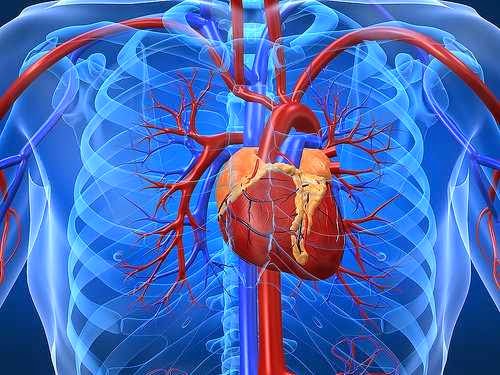
Contrary to popular belief, intermittent fasting is not an extreme or dangerous form of “dieting.” It’s actually a very healthy practice that’s loaded with a number health benefits. What kind of health benefits? Everything from reducing risks that are associated with obesity, reversing diabetes, to possibly assisting in killing cancer and more.
What Is Intermittent Fasting?
Intermittent fasting is about timing your meals to allow for regular periods of fasting. Recommendations for allocating time throughout your day to go without food range from approximately 12 to 16 hours. This would mean, for example, only eating between the hours of 11 am and 7 pm, and doing so everyday. There are other ways to do it and we will get to that later in the article.
This does not mean binge eating, and taking in vast amounts of junk food into your system during the times allocated for yourself to eat. Doing so would be extremely counter productive and very unhealthy. In fact, the whole practice of fasting can be lost with how you break that fast. Just as important in the entire process of fasting is what you are eating, and how you are eating during the time allocated for you to do so, as well as what you eat before and after you fast.
For example, research published in 2010 indicated that intermittent fasting with compensatory overeating did not improve survival rates nor delay prostate tumor growth. (source) Essentially, by “pigging out” on non-fasting days, the health benefits of fasting are lost.
New Research On Intermittent Fasting And How To Do It
Some of the most recent research on this phenomenon was conducted by Dr Mark P. Mattson, Chief of the Laboratory of Neurosciences at the National Institute on Aging. He is also a professor of Neuroscience at John Hopkins University. The researchers, who also included the BBC’s Michael Mosley, reviewed previous studies on intermittent fasting and concluded that this type of eating could be healthier than eating three meals or more per day. Their work was published, and has been published many times in the past. Some of those studies are linked later in the article.
One recommended way of doing it, as did the BBC’s Michael Mosley in order to reverse his diabetes, high cholesterol and other problems that were associated with his obesity is what is known as the “5;2 Diet.” On the 5:2 plan, you cut your food down to one-fourth of your normal daily calories on fasting days (about 600 calories for men and about 500 for women), along with plenty of water and tea. On the other five days of the week, you can eat normally.

Another way to do it, as mentioned above, is to restrict your food intake between the hours of 11 am and 7 pm daily, while not eating during the hours outside of that time.
Below is a video of Dr. Joseph Mercola explaining the benefits of intermittent fasting. Here is a great article by him that explains how he believes intermittent fasting can help you live a healthier life.
For further research and science on fasting:
Evidence Shows Why Water Fasting Could Be One Of The Healthiest Things You Can Do
Scientists Discover That Fasting Triggers Stem Cell Regeneration & Fights Cancer
Source: Collective Evolution
Related:
- Scientific Study Finds Eating Coconut Oil Daily Leads to Reduction in Waist Size
- Top 12 Super Foods that Improve Your Digestion
- A Recipe For Fat Flush Water (It Literally Flushes Fat)
- 11 Ways to Naturally Boost Your Metabolism for Weight Loss
- This Is What Happens When You Drink Water Right After You Get Out Of Bed
- See What Happens When You Eat Garlic On an Empty Stomach
- Why Dehydration Is Making You Fat And Sick
- This Is Why You Should Never Throw Away The Used Tea Bags Again
- Here’s How To Cleanse Your Body Of Toxins In 3 Weeks. You Only Need 2 Things!
- 36 Foods That Help Detox and Cleanse Your Entire Body
- 21 Health Tricks To Teach Your Body
- 19 Super Foods That Naturally Cleanse Your Liver
- How to Clean Your Liver with 5 Natural Liver-Cleansing Tips
- How To Clean Your Arteries With One Simple Fruit
- After Reading This, You’ll Never Look at a Banana in the Same Way Again
- Garlic Soup Made With 52 Cloves of Garlic Can Defeat Colds, Flu and Even Norovirus
- 5 Food-Medicines That Could Quite Possibly Save Your Life
- Black Seed - 'The Remedy For Everything But Death'
- One Injection Reverses Diabetes Symptoms Without Side Effects
- Science Confirms Turmeric As Effective As 14 Drugs
- The Man Who Defied Odds, Turned Down Chemotherapy and Drugs and Outlived All His Doctors
- Food Matters. You are What you Eat!













COMMENTS